Ever notice how some of the most iconic movie scenes feature cars? Take the DeLorean from 'Back to the Future' or those insane racing sequences in 'Fast & Furious.' Cars don't just add coolness; they become characters themselves. What's with this obsession?
Cars have a unique way of marrying functionality with flair, making them big-stage performers in cinema. They're not just about action scenes, though; think 'Herbie' the Love Bug or the classy elegance of Aston Martins in spy films. Each vehicle tells its own story, sometimes louder than the plot itself.
It's not just movies. TV shows have also hopped on the car-obsession train. Think about the sleek rides in 'Knight Rider' or 'Magnum, P.I.' These shows leaned on cars to build their main character's persona. The cars weren't mere props; they were extensions of the lead roles.
Cars in Movies and TV
When it comes to movies and TV, automobiles have been more than just vehicles; they've played pivotal roles in storytelling. Ever since the advent of motion pictures, cars have symbolized freedom and rebellion. Remember 'The Italian Job' (1969 and 2003)? The iconic Mini Coopers weren't just getaway cars; they were a metaphor for the underdog spirit. And who could forget the Batmobile that started making jaws drop back in 1966?
These iconic rides have left tire marks on cinema and TV history. Exciting car chases are now a staple, capturing viewers with their speed and thrill. Hollywood loves putting fast wheels under heroes and villains alike. Consider James Bond's Aston Martin DB5—its gadgets and futuristic style made it a star of its own.
The Car as a Character
Some vehicles have been so central to storylines that they're akin to a character themselves. Take 'Herbie,' the Volkswagen Beetle with a mind of its own, or the smart-talking KITT from 'Knight Rider.' These cars were almost as important as the human actors, sometimes stealing the limelight with their quirks and capabilities.
Movie magic isn't the only thing driving cars onto our screens. TV series like 'Supernatural' feature the Winchester brothers darting across the U.S. in a 1967 Chevy Impala, while 'The Dukes of Hazzard' showcased the General Lee, arguably more famous than the show's human characters. These vehicles weren't just modes of transport; they were integral to the narrative.
| Movie/TV Show | Iconic Car | Release Year |
|---|---|---|
| Back to the Future | DeLorean DMC-12 | 1985 |
| Fast & Furious | Dodge Charger | 2001 |
| Knight Rider | KITT | 1982 |
Whether it's the nostalgia of a classic film or the rush of a modern blockbuster, cars in movies and TV are here to stay. They're not just part of the scenery—they frequently deliver emotional impact, context, and, in some cases, even take a bow as the real stars of the show.
Automotive Fashion Statements
Ever wonder how cars became fashion icons? It's not just about the rides themselves; it’s about what they represent. Take, for example, the unmistakable leather bomber jacket that came into vogue thanks to the love affair between cars and speed from classic racing days.
Back in the ‘50s and ‘60s, car culture exploded, and with it came a whole new fashion trend that wasn't just about practicality. Suddenly, owning a car meant you were part of an exclusive club, and with that came the responsibility to look the part. Consider the leather driving gloves and aviator sunglasses that became staples.
When Cars Meet Couture
Let's not forget about the impact on high fashion. Designers like Gucci and Louis Vuitton have drawn inspiration from automobile aesthetics. Think leather seats and fine stitching — these details made their way into clothing designs. It's like cars continuously fuel the fashion engine.
Here’s a fun fact: The first car to have a direct influence on fashion was the Ford Mustang. Its sleek design and vibrant colors found their way into the times' clothing lines, making it a muse for both everyday clothing and high-end pieces.
Street Wear and Car Culture
Fast-forward to today, and it's impossible to miss the influence of cars in streetwear. Brands like Supreme and Off-White often drop collections featuring iconic car imagery or designs. These aren't just clothes; they're statements about lifestyle and identity.
- Think about the graphic tees splashed with logos of automobiles.
- How about those sneakers inspired by tire treads?
- Don't overlook the influence on accessories: car-shaped earrings or belt buckles.
Automobiles are more than just a mode of transport; they've wheeled their way into our wardrobes too. Next time you're picking out an outfit, take a closer look. There's a good chance a car had a little something to do with its design.
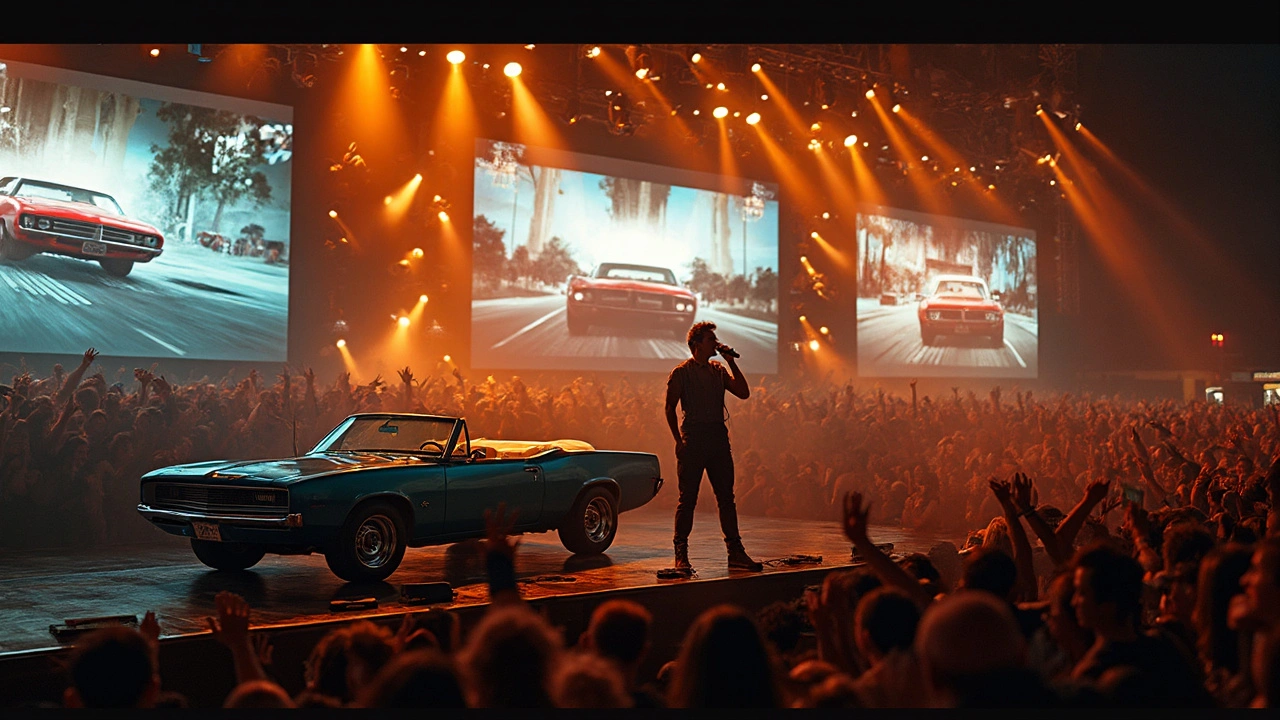
Music and Cars
When was the last time you drove down a road with your favorite song blasting through the speakers? If you've ever tapped a steering wheel to a beat, you're not alone. The connection between cars and music runs deep. Cars often steal the spotlight in music, acting as symbols of freedom and adventure.
Think about all those rock 'n' roll tunes from the '60s and '70s. Bands like The Beach Boys made a career by singing about cars, with hits like 'Little Deuce Coupe' and 'Fun, Fun, Fun.' In these songs, automobiles were more than just a mode of transportation; they were a lifestyle.
Cars in Hip-Hop and Modern Music
Fast forward to today, and you'll notice cars still fuel music. Hip-hop, in particular, loves its luxury rides. Artists often name-drop high-end models to boast about their success. It's hard to find a hip-hop track without a mention of brands like Bentley or Mercedes. These automobiles become status symbols, woven into the fabric of the music genre itself.
Interestingly, a study found that cars are mentioned in over 75% of Billboard Hot 100 songs over the past few decades. That's how ingrained they are in our musical landscape.
Creating a Mood with Music
But it’s not just about the lyrics. Think about how music influences your driving mood. That peppy song makes your commute less of a drag, doesn’t it? It’s practically in our DNA at this point. Road trips are synonymous with blasting playlists, creating a background score to the experiences.
Honestly, the bond between pop culture and cars isn't an accident. It's a relationship carefully curated over decades. So, next time you're cruising along, perhaps give a thought to how many lyrics and beats your car has inspired.
Car Enthusiast Communities
Step into any local car meet, and you'll feel like you've entered a world where gasoline-fueled dreams come to life. These gatherings are more than just showing off. It’s about community, shared passion, and sometimes a little friendly competition over who’s got the best ride.
What's driving this craze? For starters, owning a car isn’t just about getting from A to B. It’s an identity, a way to express yourself beyond the usual fashion trends. Enthusiasts put endless hours into their vehicles, tuning them up, detailing every inch, and making them their own unique expression of art.
Why Are These Communities So Tight-Knit?
You’d be surprised by how diverse car enthusiast communities are. From the sleek stylings of sports cars to the rugged charm of off-road beasts, each group tunes into its own frequency. The love for automobiles draws folks from all corners of life—it’s pretty democratic, when you think about it.
“A car is a canvas for someone to express their individuality through modifications, style, and culture,” says veteran car enthusiast Jay Leno, a well-known collector with a garage that would make anyone drool.
Supporting each other through project builds, charity events, and even just weekend drives, these communities foster bonds that go beyond just metal and engines.
| Type of Community | Main Focus |
|---|---|
| Classic Car Clubs | Restoration and preservation of classic vehicles |
| Sports Car Enthusiasts | Performance and speed tuning |
| Off-Road Communities | Customization for rugged terrains |
Hop on the Bandwagon
Thinking of joining a car community? It’s easier than you think. Attend local meets, join online forums, or even subscribe to related social media groups. You don’t need a flashy car; showing genuine interest can open up doors and roads to exciting adventures and friendships.
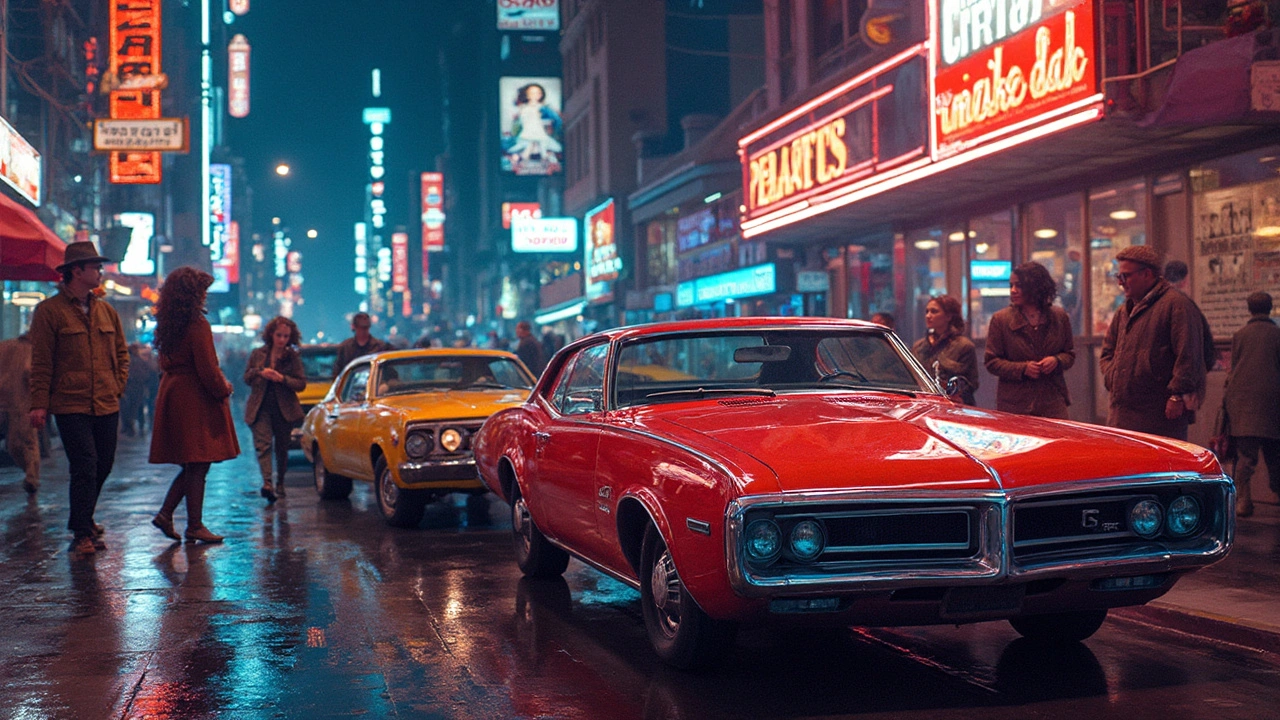
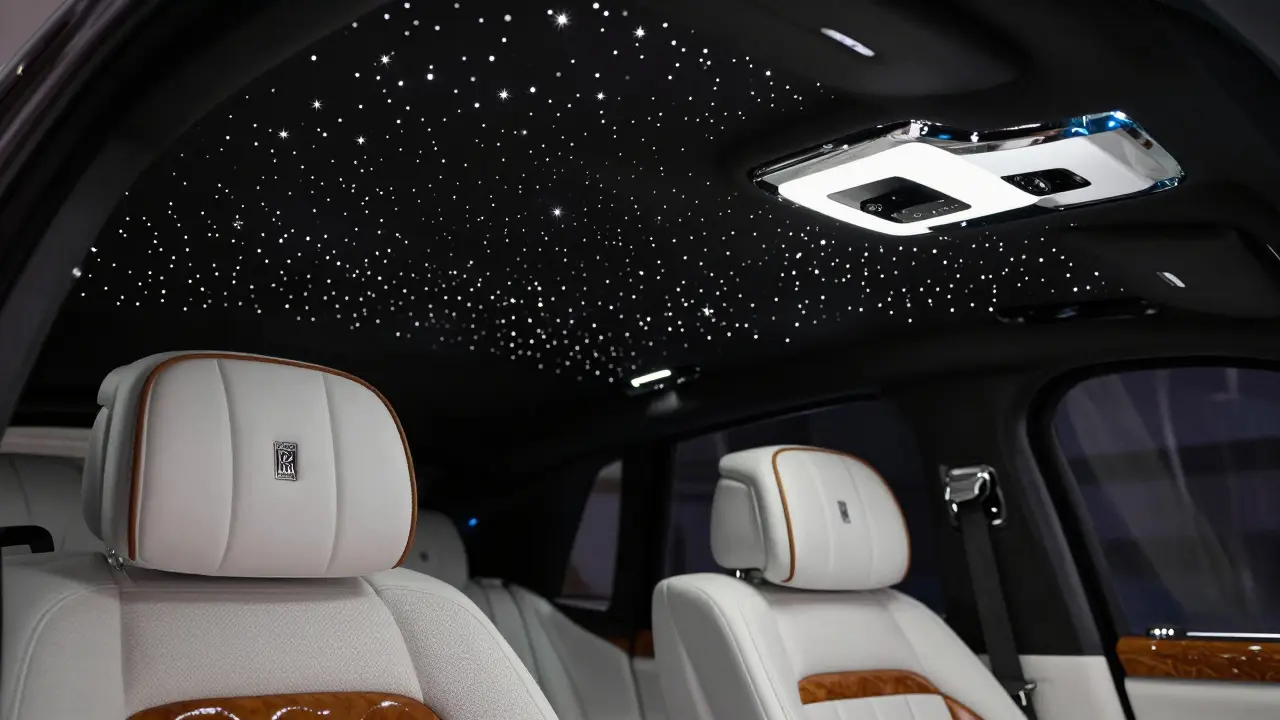
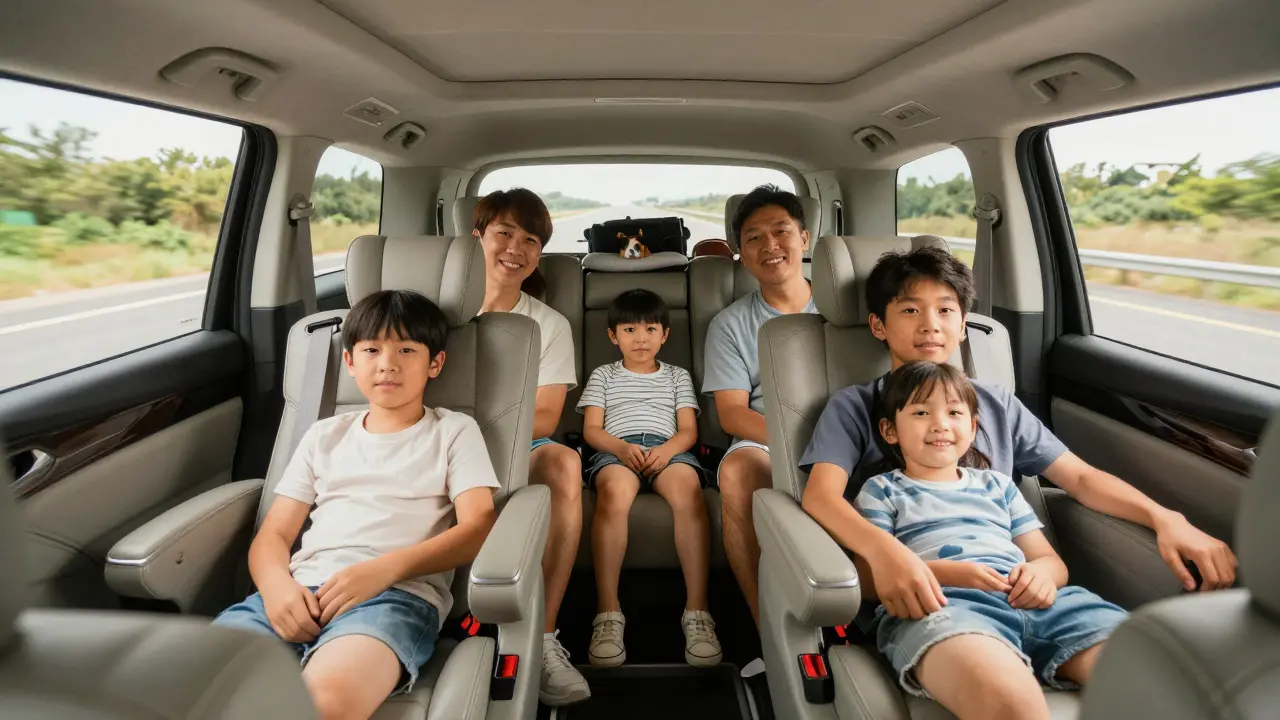
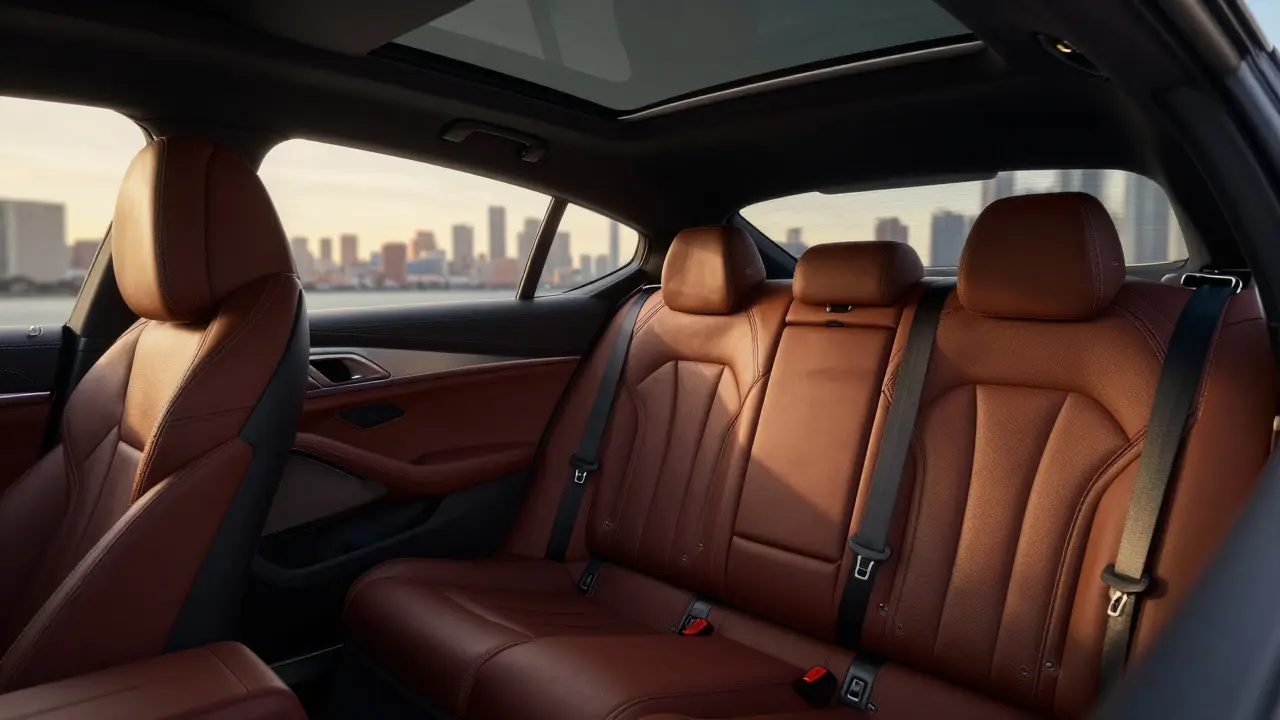
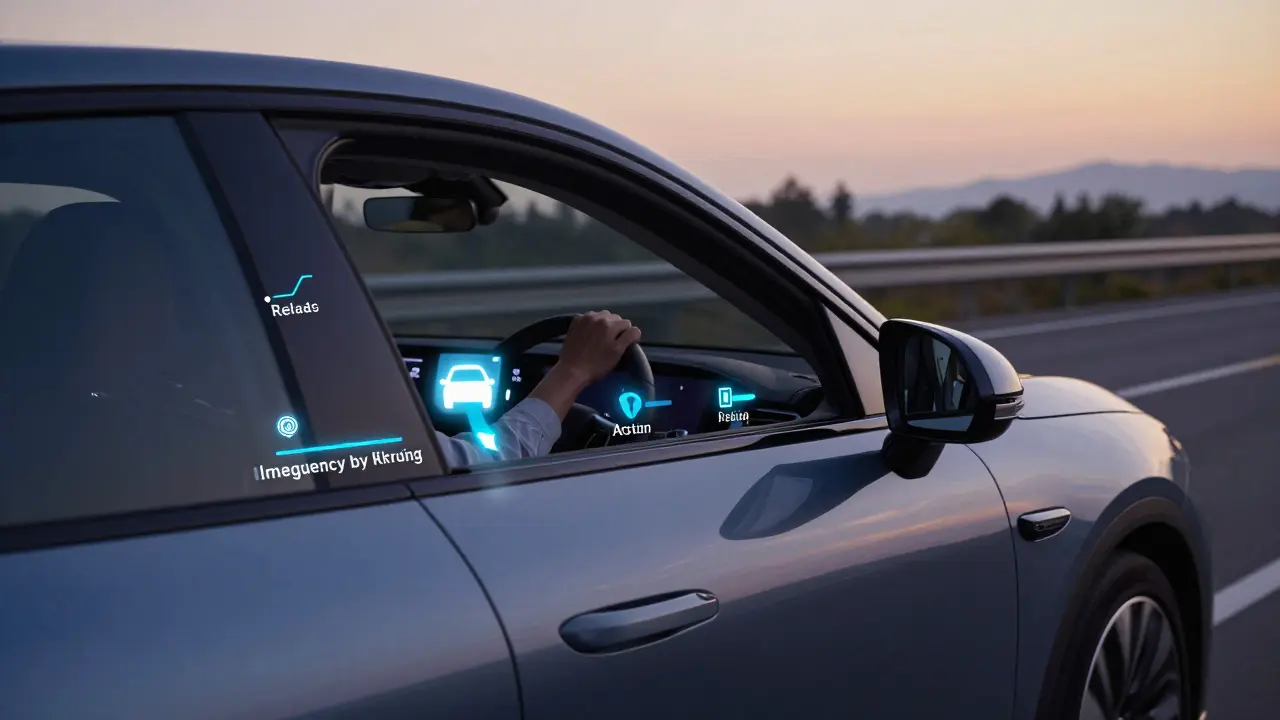

Adithya M
July 17, 2025 AT 22:10Honestly, I think cars shaping pop culture is underrated. People often forget how much influence the auto industry has on everything from fashion to music. The article is right to highlight that cars are more than just transportation—they embody freedom and innovation. But let's not sugarcoat it; the car culture has also aggressively pushed consumerism and sometimes destructive trends.
Look at how movies like "Fast & Furious" glorify speed and risk-taking. It's cinematic, sure, but it's also a cultural push that impacts younger generations’ mindset about cars and life. Cars have become this symbol where owning the right model or customizing it becomes an identity marker, which can be problematic.
Still, you can’t deny how deeply cars influence trends. From clothing styles inspired by racing gear to songs that revolve around cruising and the open road, it's a huge part of pop culture's DNA.
Jessica McGirt
July 21, 2025 AT 00:36This article really got me thinking in such interesting ways! I’ve always admired how cars appear in music videos and films as these beautiful, powerful extensions of a character's personality. It's like they tell a story of freedom and status simultaneously.
But then I wonder, how much does this affect people's environmental attitudes? With so much glamor around cars, especially gas guzzlers, is pop culture inadvertently promoting unsustainable habits? That’s a side I wish the article also explored.
The notion of cars as cultural icons is fascinating. They’re not just machines; they’ve become symbols layered with meaning that speak to our desires for independence, adventure, and identity.
Donald Sullivan
July 25, 2025 AT 19:03Yeah, I’m with the previous comments but here’s the kicker: cars pushing trends is great and all, but let’s not forget the downsides. The culture around fast cars and showing off leads to dangerous behaviors, and honestly, it’s borderline toxic sometimes.
Some people worship cars like they’re gods, forgetting that vehicles kill thousands each year due to reckless driving. Pop culture sometimes glorifies that risk, which I find irresponsible.
That said, I get it — cars do inspire creativity in movies and music. They are an essential part of modern storytelling. Just wish there was more balance in how they’re portrayed.
Tina van Schelt
July 28, 2025 AT 15:40The way the author ties cars into the fabric of pop culture is honestly poetic. Cars are like chameleons in our cultural landscape, shifting their meaning depending on the context—from rebel machines to luxury status symbols.
Think about how vibrant car culture is, from neon lights at night racing meets to the charisma of classic vintage conversions. It’s a colorful world of expression, where the aesthetics extend to fashion, music vibes, and even slang.
The article could dive deeper into how this culture gives creative communities a platform to innovate and inspire. Cars are not just material items; they are muse-like figures driving artistic trends forward.
Ronak Khandelwal
August 1, 2025 AT 03:00Oh, what a fascinating reflection on automobiles being cultural icons! 💫 Vehicles are not simply metal objects—they’re extensions of our very souls in some sense. When one cruises down the street with windows down blasting tunes, that’s a live art form expressing freedom.
Moreover, the role of cars transcends materialism and enters the realm of philosophies about movement and progress. Think about it—cars symbolize journeys not just physically but spiritually. They mark time in our lives, from road trips to first drives, each with its own story.
Indeed, cars shape fashions and music, but they also carve emotional landscapes—igniting nostalgia and personal growth simultaneously. I love how this article made me see wheels as more than circular objects but as cultural storytellers! 🚗✨
Jeff Napier
August 4, 2025 AT 03:30I'm gonna play the devil's advocate here and say this whole idea that cars 'drive' trends conveniently ignores the real puppet masters behind pop culture—big corporations and media moguls. The notion that cars themselves influence culture is just a distraction from who truly pulls the strings.
Sure, movies feature cars, but those are carefully crafted narratives designed to sell specific lifestyles and consumer aspirations. It's a feedback loop to perpetuate capitalism and control social behavior.
Maybe we’re all just cogs in a larger machine, and cars are the flashy bait to keep us hooked. Read between the lines, folks. Nothing is as innocent as it seems.
Sibusiso Ernest Masilela
August 7, 2025 AT 23:10To say cars have influenced fashion and films is quite the pedestrian observation. Honestly, many so-called car enthusiasts lack true sophistication. The entire fetish around automobiles in pop culture reeks of mundane consumerism rather than genuine artistry.
One should look at the nuances, the real artistic expressions that transcend cliché tropes of muscle cars and flashy rides. The obsession with cars often masks an insecurity about identity that is rather juvenile.
That said, I appreciate the article’s attempt to recognize the vehicle as a cultural artifact, but it’s sorely deficient in critical depth. The discourse needs to move beyond superficial nostalgia to something truly profound.
Daniel Kennedy
August 11, 2025 AT 08:16Great piece and I really appreciate the connection made between automobiles and cultural identity. Cars as icons in pop culture absolutely help foster communities, from car clubs to fans of racing games and films.
However, I think it's important to incorporate how this influence can be wielded for positive change, especially with the rise of electric vehicles and sustainable tech becoming part of the cultural conversation. Pop culture definitely has power to shift societal values, and I see cars continuing to play a role here.
What do you all think about the transition in car culture from gas guzzlers towards more eco-conscious designs? Is this becoming a new trend as impactful as those from earlier decades?
Taylor Hayes
August 14, 2025 AT 22:56I love seeing the diversity of viewpoints here! The symbolism of cars goes way beyond mere transportation for many. For instance, I remember how my own relationship with cars evolved—from a mode of getting around to a hobby that connects me with others.
The emotional bonds people have with vehicles, especially classic cars, bring out the human side of this whole phenomenon that statistics and films alone can’t convey.
That said, I also recognize the risks that others pointed out. Pop culture’s glamorizing of speed and recklessness is something we should be mindful of. It’s a powerful medium that can inspire, but also mislead.
Sanjay Mittal
August 16, 2025 AT 22:10From an engineering and historical perspective, the influence of cars on culture is truly remarkable. Cars are a fusion of art, technology, and lifestyle all wrapped into one. The article touches on the 'icons of freedom' idea, which is historically accurate—cars opened new possibilities for personal mobility that changed cultures worldwide.
In many countries, the development of automobile culture has shaped everything from urban planning to music and fashion trends. This isn’t just happenstance; it’s a reflection of how deeply intertwined technology and human expression are.
I’d be interested in seeing more research on the contrast between cultures that embraced cars early on versus those that adopted them later and how their pop cultures differ as a result.